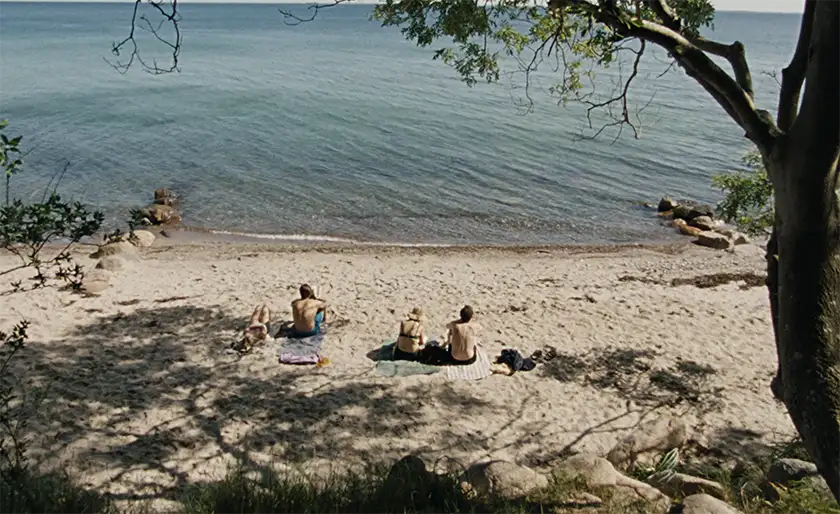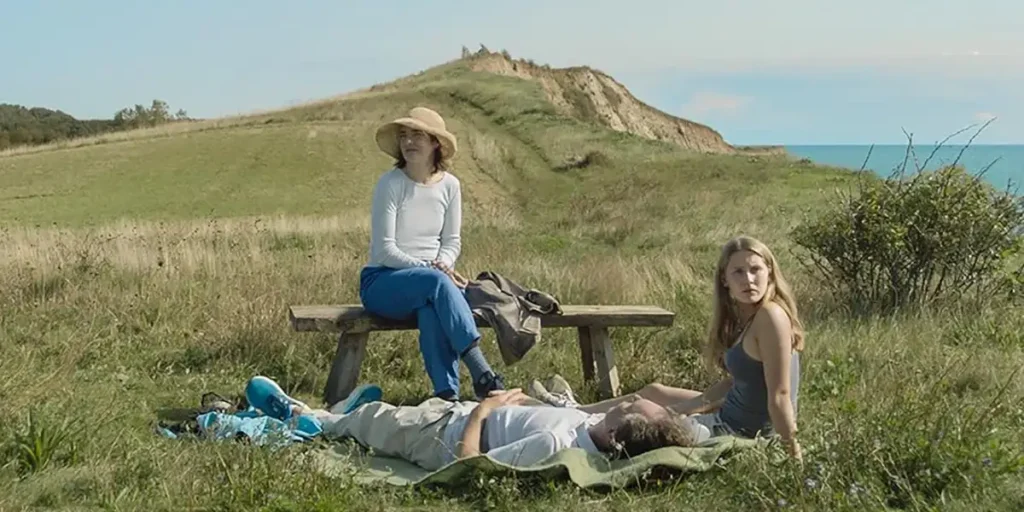My Eternal Summer is a truthful and raw portrayal of a summer in the lives of the main character’s family.
Director: Sylvia Le Fanu
Genre: Drama
Run Time: 105′
San Sebastián Film Festival Screening: September 22-25, 2024
BFI London Film Festival Screening: October 12-13, 2024
Release Date: TBA
“Do you think I am a good daughter?” the protagonist of My Eternal Summer (Min Evige Sommer) asks her father in the first half of the film. Not only is this a question that many people in the audience may have asked themselves in their lifetime, but it also sums up one of the main themes of the movie. The film invites us to reflect on the complex relationships between the characters. Their family dynamic is inevitably affected by the mother’s illness, which seems to be getting even worse during the summer.
My Eternal Summer follows one summer, as the title suggests, in the life of its protagonist, sixteen-year-old Fanny (Kaya Toft Loholt). As she is about to leave for a new school after graduation, Fanny’s summer initially seems idyllic and peaceful, spent between swimming in the sea, walking with her family in the nature surrounding their house, and watching tv together. But these mundane moments she shares with her parents may very well be the last memories she can share with Karin (Maria Rossing), her terminally ill mother whose health gets worse and worse over the course of the movie.
As it goes on, My Eternal Summer is disarmingly honest. Without necessarily feeling the need to dramatize the situation with sad music or dramatic shots, the film portrays the very sad reality of Fanny’s mother being sick. Despite never really going into too much detail about what Karin’s disease entails, , her illness is always present in the film, even in those scenes that seem more carefree and lighter. In this sense, the movie does an excellent job at portraying how Karin’s condition affects not only her as the person who is sick, but everyone around her, from her family members to her friends who witness her deteriorating health status.
I especially liked the second half of My Eternal Summer, particularly when we finally get an insight into Fanny’s mother’s feelings. In one of the best scenes of the entire movie, the protagonist reads her mother’s diary, which gives her – and us – an entry point into Karin’s her thoughts and memories. This pays off, as up till that point, the entire movie had been about her mother. Not only does this work quite well with the structure of the film, but it also allows both the audience and Fanny to see Karin as a fully fledged character rather than just Fanny’s mum. I wish the movie had focused a little bit more on this matter rather than simply suggesting it towards the end.

The film does feel slow at times, especially in the first act, but in many ways this feels like the entire point of My Eternal Summer. While watching it, you cannot help but sense that something is about to happen: the looming threat of Karin’s passing hovers over every moment of Fanny’s summer. As the film goes on and her illness becomes harder to ignore, both the audience and the characters in the film know that this is either going to end in death or in an unlikely miracle that restores Karin’s health. Inevitably, this makes the movie feel particularly long despite its less than two hour runtime, but at the same time, it only adds to the realism of a film that does not rush its narrative.
Overall, My Eternal Summer is a very sad and beautiful film that many people in the audience may unfortunately be able to relate to. The realism of the movie is undoubtedly the strongest suit of a film that is not afraid of sitting with the most mundane and seemingly insignificant moments that make up this family’s everyday life. Ultimately, this realistic portrayal of their everyday lives and feelings is what makes the ending even sadder, if only a little predictable from the beginning.
My Eternal Summer was screened at the San Sebastián Film Festival on September 22-25, 2024. The film will have its UK premiere at the BFI London Film Festival on October 12-14, 2024.

